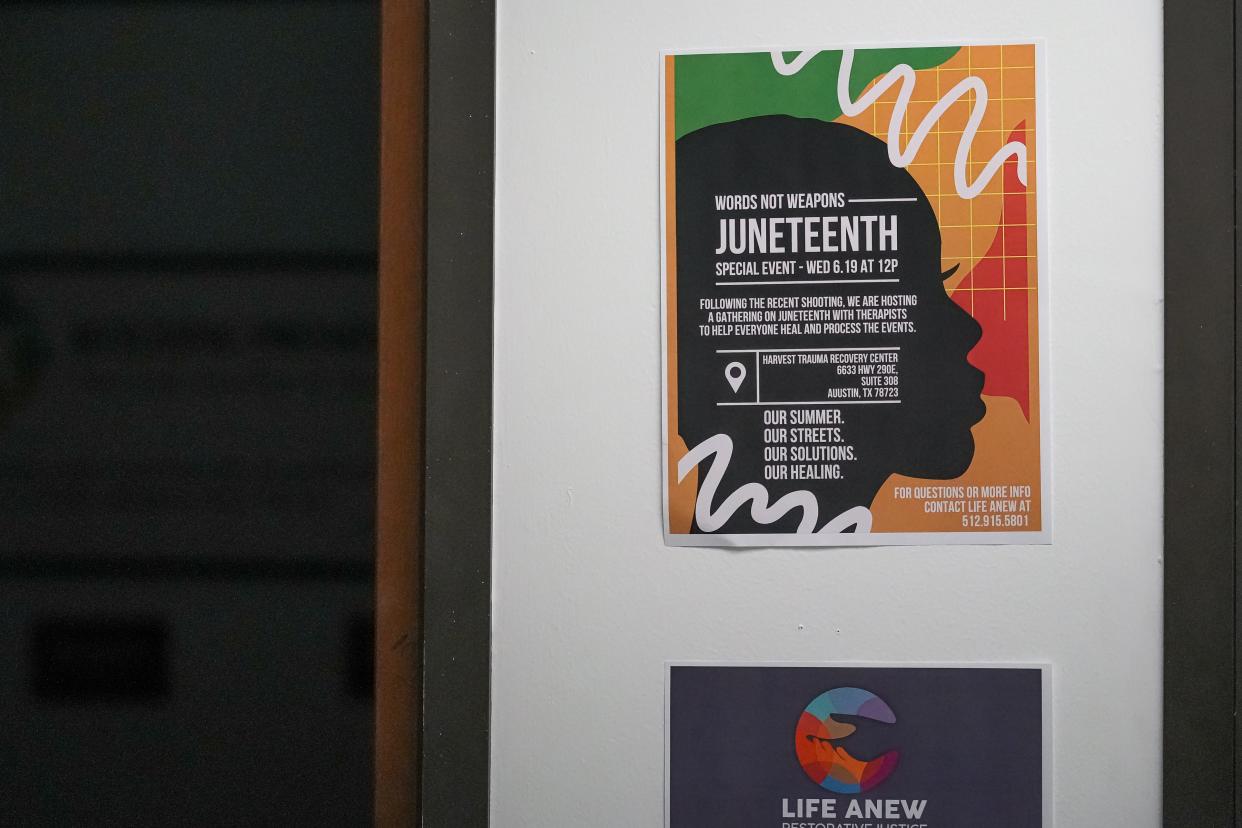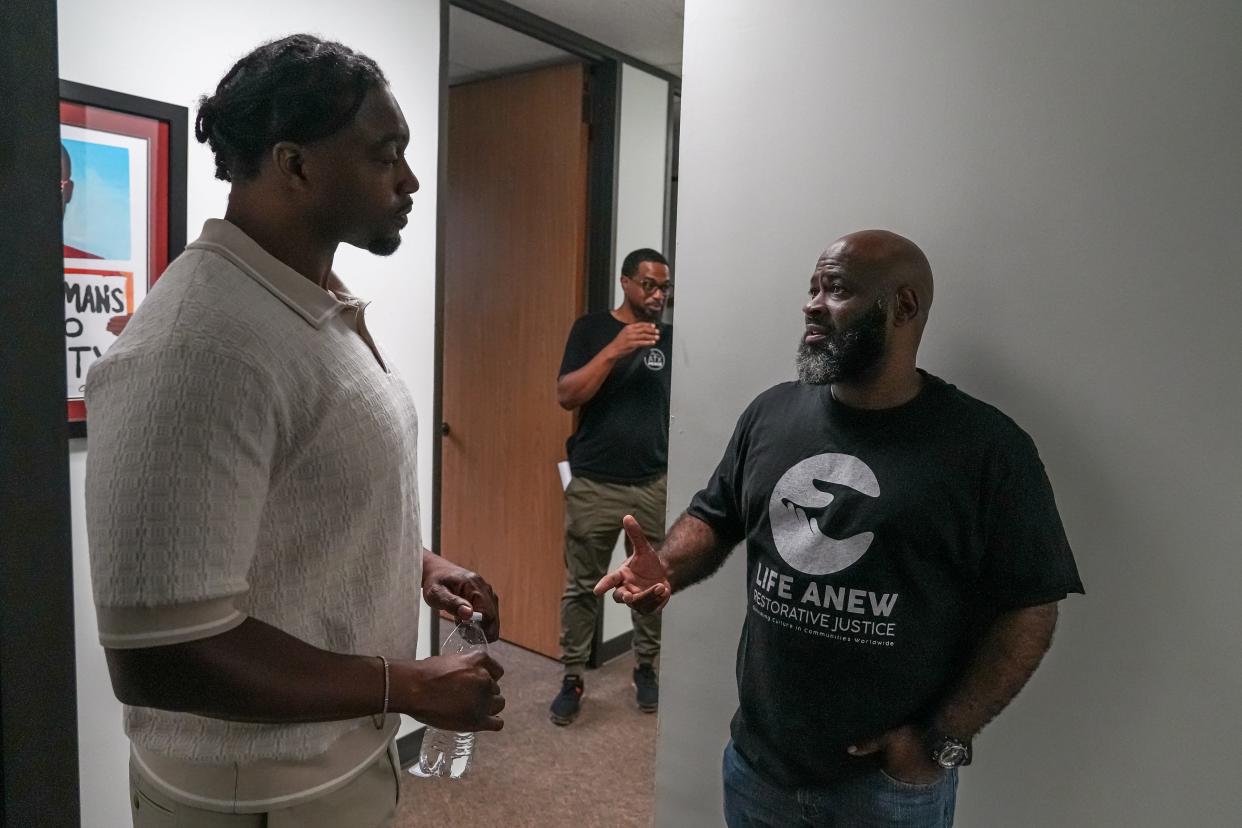On Juneteenth, Round Rock shooting survivors gather to begin 'healing process'
Juneteenth celebrations in the Austin area were stifled early this year with news of a mass shooting at a Saturday night celebration in Round Rock.
The shooting left two dead and 14 injured after bullets from an altercation hit bystanders. On Wednesday, community organizations Life Anew and Harvest Trauma Recovery Center hosted a “healing event” meant to help survivors of the shooting, community members who knew victims, and others impacted by the violence begin to come to terms with the news.
Previously: Round Rock Juneteenth shooting victims identified as Pflugerville, Manor residents
During the event, counselors spoke to small groups of attendees about their reactions to the shooting. Life Anew counselor Stephanie Richardson offered some explanations of trauma and emotional responses to violence.

“You’re gonna feel anger. You’re gonna feel guilt, and with guilt comes shame,” Richardson told the group. "Part of trauma is your brain telling you what you could have to prevent this. And part of this processing of healing from trauma is telling yourself that you did what you could.”
During the session, survivors from Saturday's shooting expressed guilt for being unable to help those injured around them. Those who knew survivors found themselves fraught with contrasting emotions. On one hand, they were grateful those they knew had survived. On another, they were angered by the acts of the perpetrator.
Many in attendance Wednesday also spoke about their delayed reaction to the shooting’s magnitude. A few said it had taken until early in the work week for them to reflect on what they had seen or heard on Saturday. That too inspired guilt.

Richardson told her group that this was normal, and that it was important everyone feel justified in their pain, regardless of their proximity to the violence.
Between tears, some attendants nodded.
The hope, Richardson said after the event, was that the session gave those impacted “the information to define their trauma” and a space to share their emotions and experiences with others who were suffering.
Michael Lofton, CEO of the parent organization which oversees the trauma recovery center, said the event also intended to introduce these community members with the longer-term services available at the Harvest TRC. Since it opened last November in Windsor Park with city and county backing, the center has offered therapeutic service and economic support for victims of violence.
Previously: Austin opened its first trauma recovery center in Texas this November. What does it do?
Kimberly Holiday, a Pflugerville councilmember who also works as a case manager at Harvest TRC, said the center had seen “a constant flow” of individuals impacted by the Round Rock shooting stop by to talk to a therapist.
“Monday morning by 8:30 a.m. we already had people coming in,” Holiday said.
Many have signed up for additional sessions, she said. As part of the TRC’s model, individuals impacted by violence can access up to 16 therapeutic appointments.
Holiday said showcasing these services will help ensure residents "ask for help" and "don't get stuck," necessary measure for a community to return to their day-to-day and begin to look at the question of how to improve future violence.
This article originally appeared on Austin American-Statesman: Round Rock mass shooting survivors look for trauma support services
